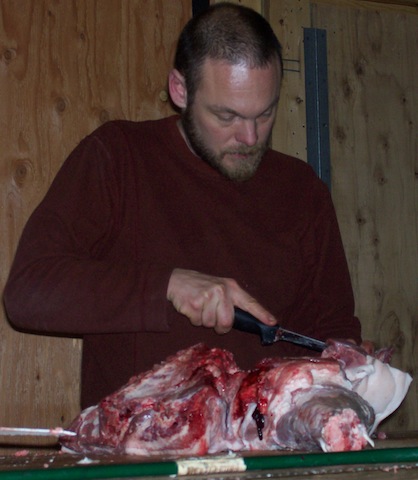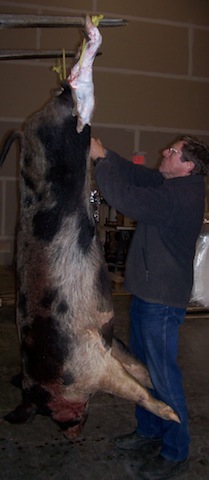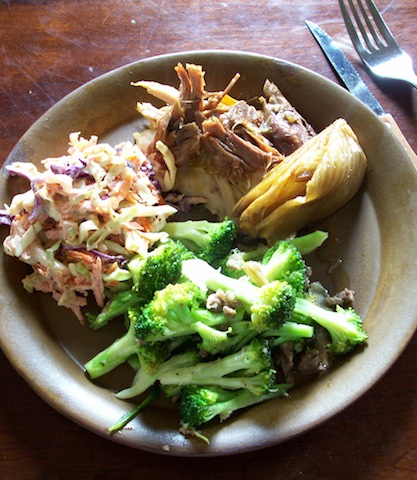A video Where is the Meat was forwarded to me from Big Bear Ranch. The video was produced by Wendy Aasen and Pamela Tudge. Pamela Tudge is doing a masters degree at UBC Okanagan at the Center for Social, Spatial and Economic Justice which is part of Community, Culture and Global Studies. If you would like to read Pamela Tudge’s blog go to: okanaganfood.blogspot.com.
New slaughtering rules in BC are a serious issue for anyone interested in local food produced in a traditional manner. The government has implemented these rules to make the food supply “safer”. Of course, if more rules made the food supply safer we would not have had 20 people die from Listeriosis last year from Maple Leaf Foods’ contaminated processed meats. If a big, heavily regulated corporation like Maple Leaf Foods can have such a big problem, more rules won’t make us safer. For an update on the Listeriosis outbreak read: Up to 10,000 Could File Claims.
Maybe we need to look someplace else for food “safety” other than government regulations. Small local farmers and ranchers can produce animals for food in a humane way. These pastured animals live a more “natural” life compared to industrial confinement methods. Pastured animals are healthier and need less medical interventions than confinement animals. Most pastured animals never need antibiotics, while confinement animals get antibiotics in their fed just to deal with their living conditions. Many specialists believe that feeding grain to a ruminant acidifies their gut and has caused the evolution of acid tolerant strains of Escherichia coli such as 0157:H7. These strains of E. coli can get through our stomach acid and make us very sick or kill the weak among us. If you would like to read more about acid tolerant strains of E. coli read: Simple Change in Cattle Diets Could Cut E. coli Infections.

Here's Shaen learning how to cut up a hog haunch. Considering how little we knew everything went very well.
Finally, animals are less stressed when they are killed on the farm compared to being loaded into a large trailer and trucked across the province to a government approved abattoir. They end their life in a strange place, killed by people that don’t know them.
The government would like to see all animals butchered in a government approved abattoir. A farmer cannot kill one chicken and sell it to you. Doing so, the farmer becomes a criminal. The farmer must ship the animals and fowl to these government approved abattoirs, sometimes across the province, which may not be cost effective. This doesn’t make the food supply safer. It just puts the farmer out of business.


